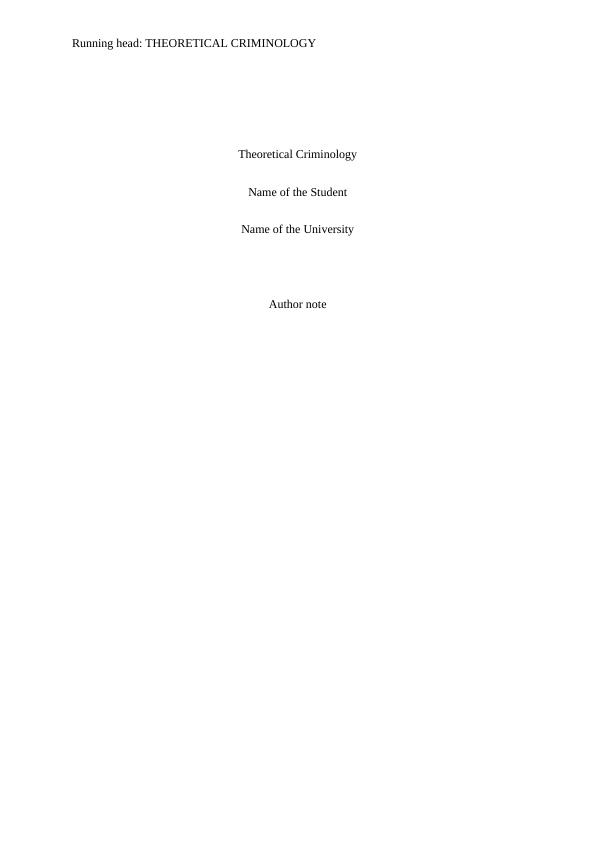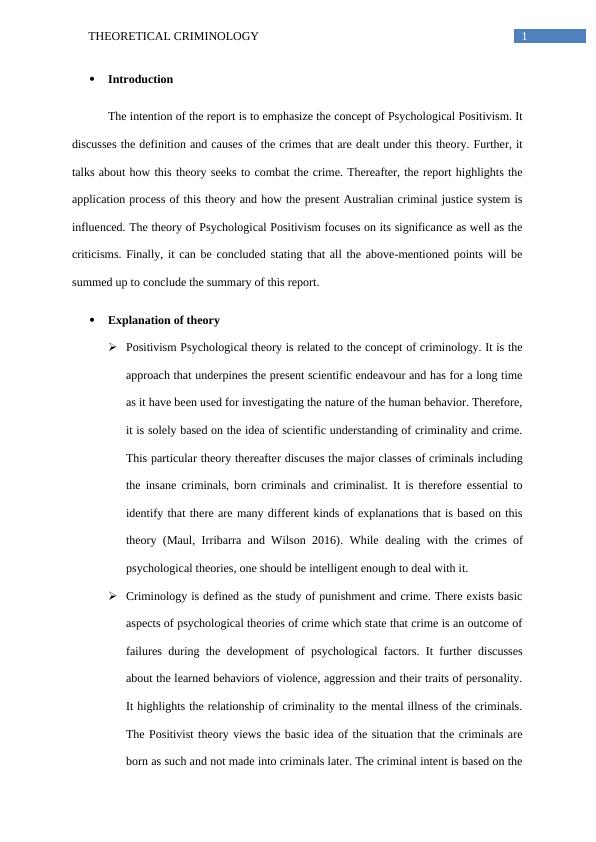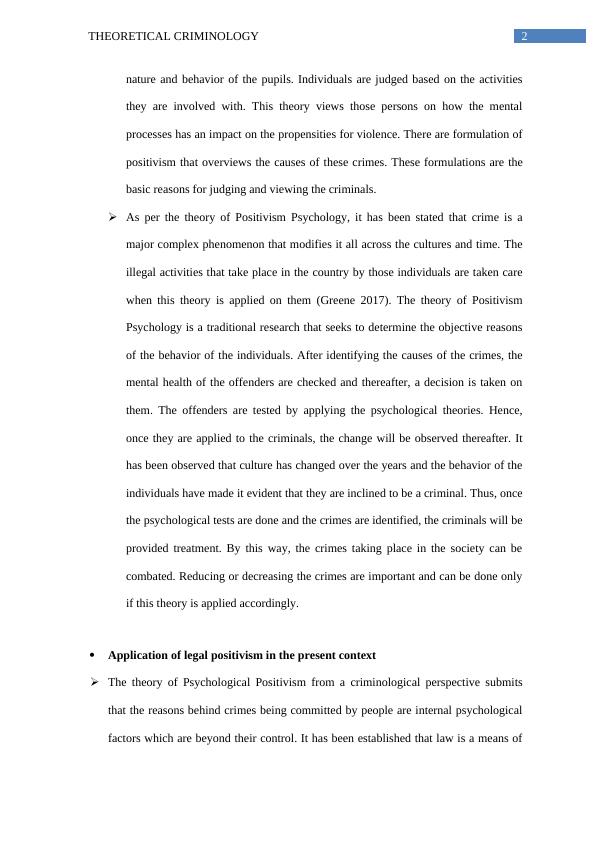Psychological Positivism in Criminology: Definition, Causes, and Application
Choose one criminological theory and discuss its central focus, explanation of the cause of crime, and its relevance to the Australian Criminal Justice System (CJS). The report should be 2000 words with a minimum of 8 references.
10 Pages2471 Words169 Views
Added on 2023-06-10
About This Document
This report emphasizes the concept of Psychological Positivism in criminology, discussing its definition, causes, and application in the present Australian criminal justice system. It also highlights the relevance and criticisms of this theory. The report concludes that despite criticisms, Psychological Positivism is still relevant in criminal theory and is regularly applied in determining guilt or innocence in various forms of crimes.
Psychological Positivism in Criminology: Definition, Causes, and Application
Choose one criminological theory and discuss its central focus, explanation of the cause of crime, and its relevance to the Australian Criminal Justice System (CJS). The report should be 2000 words with a minimum of 8 references.
Added on 2023-06-10
ShareRelated Documents
End of preview
Want to access all the pages? Upload your documents or become a member.
Positive Criminology
|6
|1549
|389
Dangerous Offenders in Canada - A Perspective from the Positivist School of Criminology
|6
|1264
|431
Study of Criminal Behavior Assignment
|14
|3376
|71
Sample Assignment on Criminology
|5
|1335
|200
National Youth Policing Model in Australia: A Criminological Perspective
|13
|3419
|264
Theories of Juvenile Offending
|9
|1197
|338



